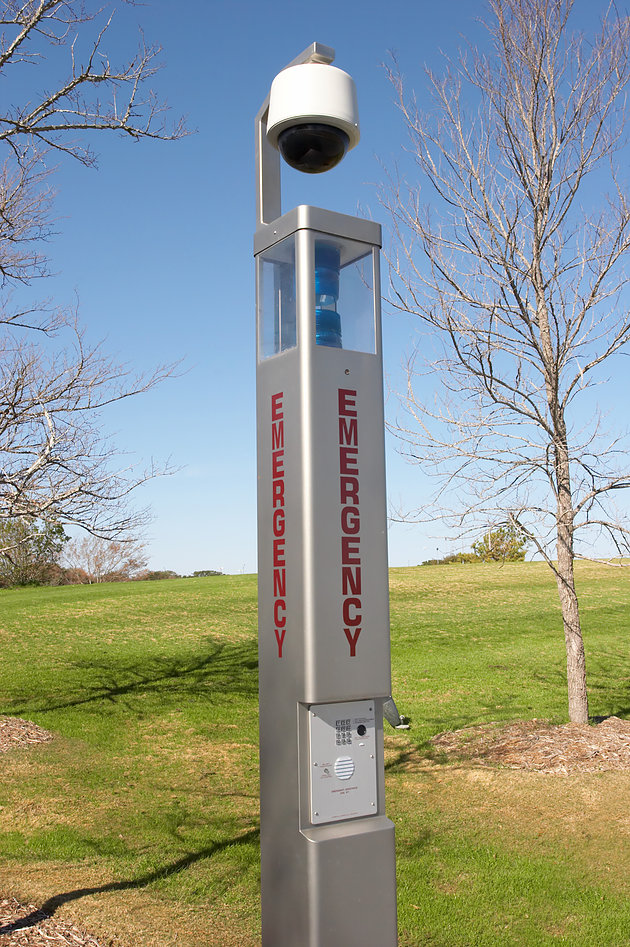Simple, Yet Safe: Using Emergency Phone Systems to Improve Campus Security

Emergency Phone systems, such as the recognizable blue light emergency phone, have watched over college campuses for decades. And, they continue to do so. Though, in the age of cell phones, it may seem like we are traveling with a mini security system at all times.
When walking across a college campus, students may feel safer knowing that, if they should find themselves in a dangerous situation, help is only as far away as their pocket. Some may feel that, as long as they have a cell phone, emergency phone systems on campuses are obsolete.
But, cell phones may actually create a false sense of security. There are significant disadvantages to relying on a cell phone for security. The beauty of using emergency phone systems to improve campus security is in their reliability and simplicity. To use these systems, they simply have to be there.
So, why do college campuses continue to use emergency phone systems to improve the safety of their schools?
Reliability:
Cell phones die. They get left behind. They lose service.
There are a number of reasons that when you turn to your cell phone for help, it may fail you. Emergency phone systems work like regular phones over copper wires (telephone or network cables) and are built to withstand weather and other emergency situations. They will work even when your cell phone won’t.
Simple to Use:
In a panic, pulling out your cell phone, unlocking it, getting to your phone’s keyboard and dialing, may seem an insurmountable feat. Your hands are shaking, your head is spinning, and your brain is foggy. Technology is not your friend. In situations like this, the ability to spot a blue light, run toward it and press one button is a much more attainable task. With the push of a single button you are directly connected to emergency staff that with most systems will provide them with your exact location. Security can be immediately dispatched and help is on the way.
Connecting You to the Right People:
Calling for help may not matter if it’s not the right kind of help. If you’re on a college campus, calling 911 might not be the best course of action. Many areas of campuses can be secluded from main roads and getting the police to your location could be complicated. Emergency phone systems are directly linked to campus security, the people who will be able to get to you fastest.
Mass Notification Alert:
These systems also be used to notify people within the area of an emergency. In the event of an emergency, they can be used as a broadcast system. While there are multiple ways to notify students of situations through their phones, many of these require the installation of an app. It also requires the phone to be on, with the student, charged and within service range.
The emergency phone system can broadcast messages and transmit warning signals that can be heard across campus regardless of whether the student has their phone.
While these systems may not be ideal in every situation or location (it may not always be possible to get to one) simply knowing they are there can provide a sense of security to students, staff and visitors as well as being a deterrent to warn potential attackers to stay away.
